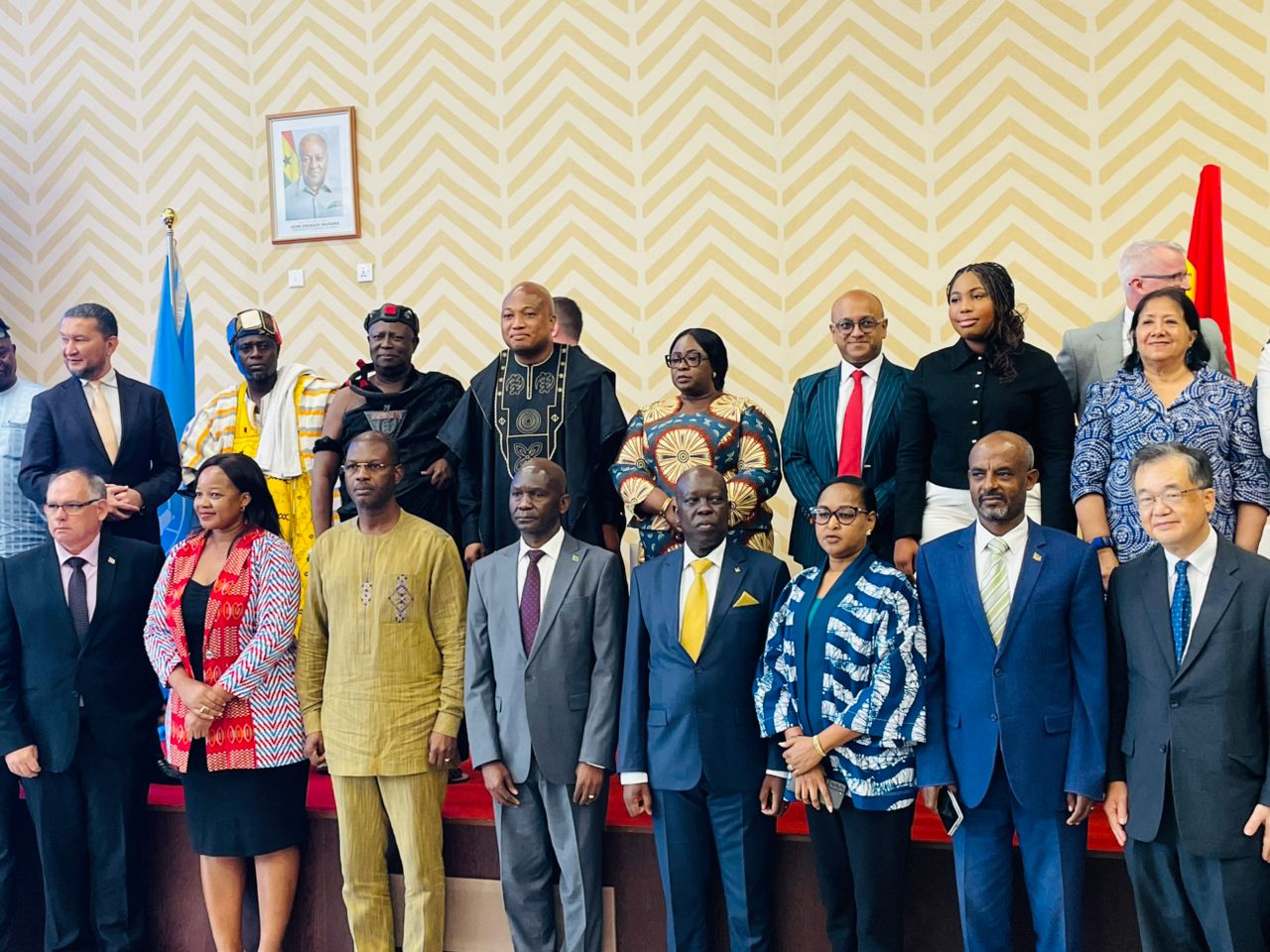Copyright gbcghanaonline

By: Hannah Dadzie The Minister of Foreign Affairs, Samuel Okudzeto Ablakwa, has called for the reset of the international financial system to ensure fairer access to capital, debt relief and investment opportunities for developing countries. Speaking at the UN@80 High-Level Dialogue in Accra, Mr Ablakwa, said many developing nations are trapped in unsustainable debt cycles, limiting their ability to achieve the Sustainable Development Goals. The Foreign Affairs Minister, said reform of the IMF and World Bank voting structures is essential to giving these nations a stronger voice in shaping meaningful in global economic policies. “The world cannot keep demanding responsibility from the Global South while denying it the resources to act,” he added. The dialogue, titled “The Future of Multilateralism in a Changing World” and “Advancing Sustainable Development and Finance in a Fragmented Global Order,” brought together government officials, members of the diplomatic community, development partners, and civil society representatives to discuss how to make the UN more effective, inclusive, and relevant to the 21st century. Participants agreed that the credibility of the UN depends on its ability to reflect today’s realities. Minister of Foreign Affairs, Samuel Okudzeto Ablakwa, said Africa’s limited role in global decision-making undermines the principles of equality and shared responsibility that the UN was founded on. Mr Ablakwa states that the milestone celebration offers a moment for sober reflection on the United Nations’ achievements and a renewed call to strengthen collective action in addressing rising geopolitical tensions, inequalities, and global instability. He stressed that the future of multilateralism must be defined by renewal and reform rather than retreat, noting that the UN must evolve into a more agile and representative institution capable of responding to current realities. Touching on humanitarian concerns, the Foreign Affairs Minister decried the growing attacks on aid workers worldwide, describing 2024 as one of the most dangerous years for humanitarian personnel. He reaffirmed Ghana’s commitment to safeguarding humanitarian workers, recalling his participation in the signing of the Declaration for the Protection of Humanitarian Personnel at the 80th UN General Assembly in New York. “Humanitarian workers save lives, and we must not allow their work to cost them their own,” Mr Ablakwa said On climate action, Hon. Ablakwa pressed for predictable, concessional, and climate-sensitive financing, arguing that “for small island and least developed countries, climate finance is not a privilege, it is a lifeline.”The UN Resident Coordinator in Ghana, Zia Choudhury, acknowledged that while the UN family remains imperfect, it continues to serve as a platform for shared progress and honest dialogue. He emphasized that building the world’s future together requires collective responsibility, fairness, and inclusiveness. “The UN is the world’s town square, a safe space where nations can share concerns, ideas, and solutions:. The UN Resident Coordinator said Echoing the sentiments on the need for dialogue, Mr Choudhury, welcomed the high-level event, noting that the anniversary theme, requires shared responsibility, strong partnerships, and a renewed commitment to multilateral cooperation. “Dialogue is one of the most powerful tools we have to share ideas and create solutions. Through dialogue and multilateralism, we can truly build a better tomorrow for Ghana, Africa, and the world,” he said Mr. Choudhury cautioned that although technology has accelerated communication, it has also diminished genuine understanding. He stressed the need to protect spaces for open and honest dialogue, encourage constructive criticism, and confront difficult truths, emphasizing that bureaucratic inertia should not hinder the UN from advancing with courage and innovation. A Youth Fellow Alumna of the United Nations Population Fund (UNFPA), Bernadette Seyram Azah, called for the institutionalization of youth participation in national development processes. Ms. Azah described the UN as a symbol of hope, solidarity, and shared humanity, that continues to shape global progress through multilateral cooperation. She reflected on her personal journey with the UN, which began during her time as a Youth Leaders Fellow at UNFPA Ghana in 2024, where she learned that “development work is not only about policy, but about people, purpose, and teamwork.” Ms. Azah emphasized that the endurance of multilateralism depends on inclusion and adaptability. She urged policymakers to create spaces that allow young people to contribute meaningfully to decision-making processes, particularly in areas such as education, national development planning, and environmental protection. “Local problems are best solved with local solutions, and young people must have a seat at the table,” she said. The High-Level Dialogue forms part of a weeklong series of events organized by the Ministry of Foreign Affairs and Regional Integration in collaboration with the United Nations to commemorate the UN@80 under the theme “Ghana and the UN: Shared Responsibility for a Better Tomorrow.” The celebration will be climaxed on Friday, October 24, with a flag-raising ceremony and photo exhibition, showcasing eight decades of Ghana–UN cooperation in peacekeeping, developmentand humanitarian work.



